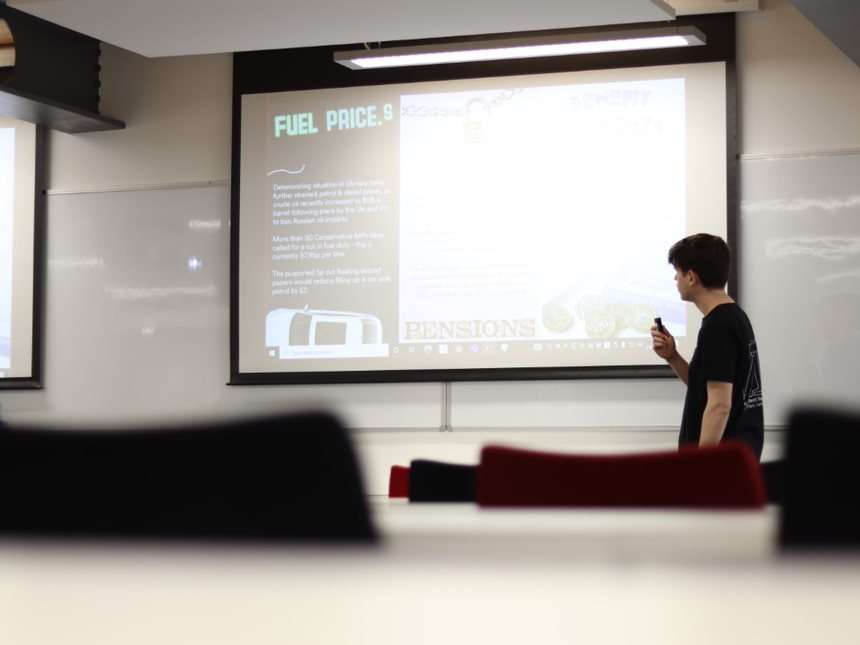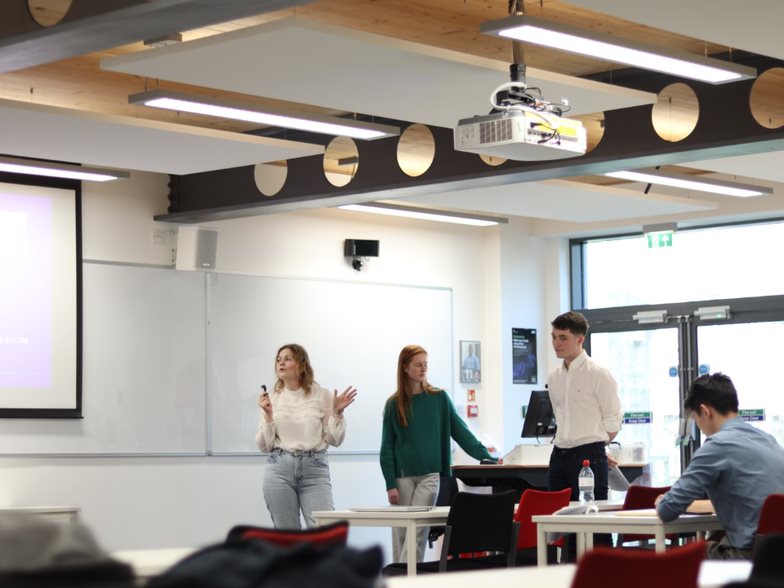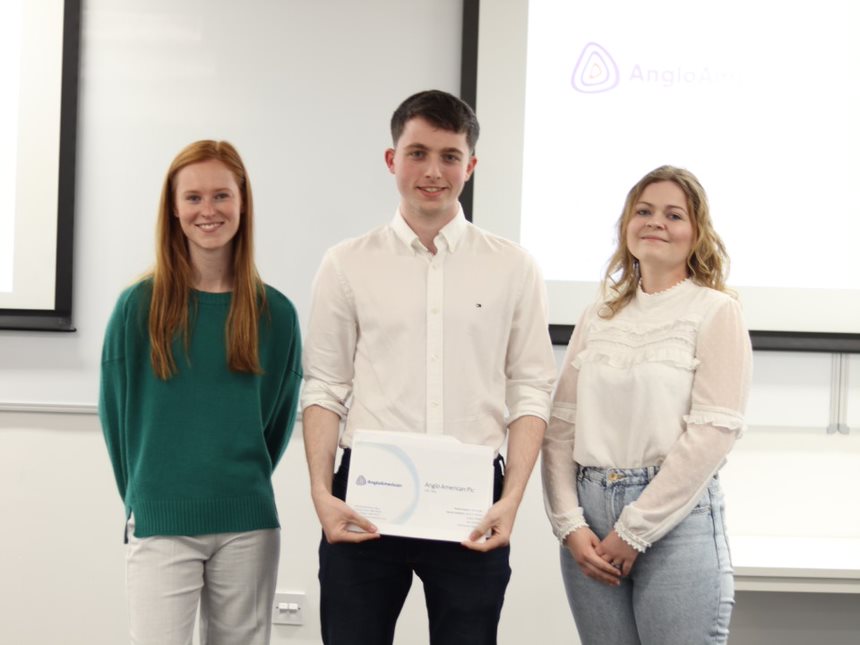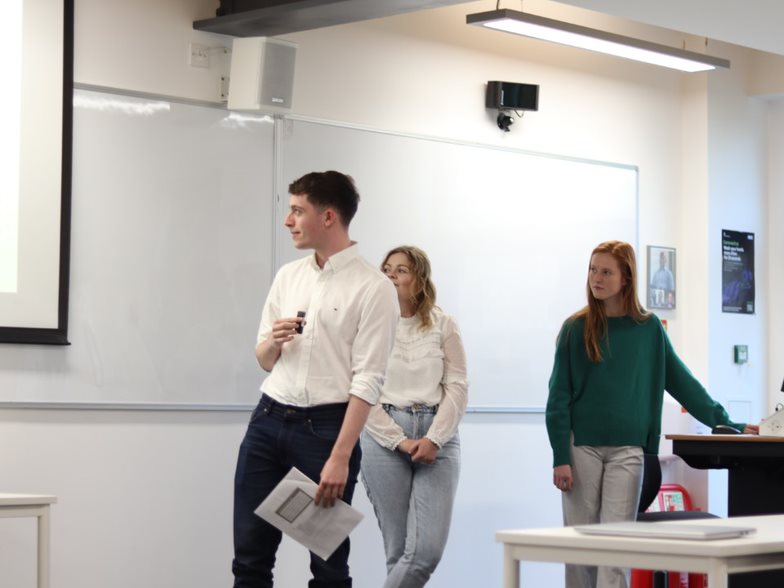“It is a must-have skill for people interested in hedge funds or asset management firms.” Wednesday, March 23rd saw the first round of stock pitches in Kent Invest’s annual Stock Pitch Challenge. I had a conversation with President Lucas Lane.
Sebastian: So what is the Stock Pitch Challenge?
Lucas: The Stock Pitch Challenge is Kent Invest’s annual flagship event. Members work in teams to create a stock pitch on a particular company they think is going to outperform the market––generating higher returns than the S&P 500. The teams are formed based on their self-assigned investment skill level so each team has a range of experience levels. This encourages a protege effect to help members learn.
Pitches represent a summary of research findings about a company. The goal is to try and support an investment decision based on an investment thesis comprising of qualitative and quantitative factors while also considering potential risks.

Therefore, a pitch is an opportunity to display research skills and boost confidence in public speaking. In particular, it is a must-have skill for people interested in hedge funds or asset management firms.
S: That sounds like a great opportunity for people to get involved to develop both their market knowledge, and some of those key presentational and research skills. How many years has this been going on?
L: There has been a Stock Pitch Challenge every year in Kent Invest ever since I joined in 2019. I’m sure there were several more years of stock pitches before my tenure also.
S: That’s super cool to see that this tradition has been so long-standing, even withstanding COVID! How many groups do you have participating this year?
L: There are five teams presenting each consisting of around five members. Tom’s team only had three people presenting due to illness but members in the background that contributed to the slides are recognised.

S: And how does it work––does each group present every week, or is it different groups? How does presenting work?
L: We’ve been accommodative of participants’ busy schedules so there isn’t a strict code for presentations. Tom’s team have kicked things off and the remaining five teams have been given a couple of dates to choose from.
S: How does winning work––is someone eliminated each week, or do you just choose one winner at the end based on the actual stock market?
L: For the Stock Pitch Challenge, teams must pitch a long position. The selection is not limited by industry, geography, or market capitalisation. However, the following restrictions do apply: no over-the-counter stocks, ETFs, ETNs, closed-end funds, or any other exchange-traded securities. The pitches are judged on four main points: quality of investment idea, quality of the presentation, communication of the presentation, and a Q&A.
This year we have two guest judges: Aaryman Patnaik, who was the former Kent Invest chairman from 2019-20 and now works in PE at Schroders Capital, and Alessandro Simone, who was a former Kent Invest Portfolio Manager from 2019-20 and has since completed an MSc in Finance and Investment. The committee also judges the stock pitches. The teams will be ranked on these factors and the ranks across judges will be averaged to determine the winner.
S: Sounds intense, and very exciting. How can people come along and see the pitches? How many days or weeks is this taking place over?
L: Technically, the challenge starts later on in the Autumn term, but the stock pitches themselves are not presented until the end of the Spring term. We formed four groups in the autumn term and two groups during the spring term. (Learn more here.)
S: Well Lucas, thank you so much for your time today, and I hope it goes well with the rest of the pitches!
I also had a chance to hear from one of the participants in the challenge, Tom Hulks, and get his thoughts on the Stock Pitch.
Tom: As an Economics student myself, I have greatly enjoyed taking part in the annual Stock Pitch Challenge. I have been able to enhance my economic knowledge both on a micro level––when analysing a sector or company, and on a macro level––when forming a consensus on the current economic environment in which a company operates.
Specifically, I enjoyed leading and working with a diverse team of student analysts. One of my favourite aspects about the Stock Pitch Challenge is that it brings together students of different abilities and degree backgrounds, who are all willing to learn more about the world of investing. My team included students from a variety of academic schools, including Politics, Economics, Accounting & Finance, Data Science, and AI.
Alongside building valuable leadership and presentation skills, and experience using the Bloomberg Terminal, the ability to collaborate within a diverse team and leverage a wide range of perspectives is a highly desired skill in the graduate job market. These are definitely some of the key experiences that I will take away from the stock pitch challenge.
If you want to get involved or find out more about Kent Invest or their annual Stock Pitch Challenge, you can join their society, or visit their website to learn more here.



